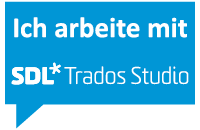FAQ translations mechanical engineering
Question: Where are your translations carried out?
Answer: We have had our head office in Germany (Wuppertal, NRW) since 2001 and offices of our translators in many countries around the world: from Japan to Portugal. Only native speakers who are perfectly familiar with mechanical engineering and plant construction translate for us.
Question: Who translates technical documentation for you: are they engineers or technical translators?
Answer: We rely on specialist translators. Our many years of experience and countless test translations have proven to us that a technical translator with good technical knowledge translates better than an engineer with good language skills. However, we often use engineers as proofreaders. Especially when it comes to complicated topics with technical terms. Here, the target language is more important than the foreign language.
Question: Are translations proofread?
Answer: Almost every translation at Techlniguist is proofread, often twice: by the proofreader and then by the project manager. All at no extra cost. This is a special feature of our translation agency. There are exceptions, they depend on the project, we discuss them separately with the client. Everything is determined by the budget of the project and the delivery date.
Question: Is it possible to negotiate discounts with you?
Answer: We give a 10% discount on large translations (50 pages or more), otherwise not. Translating is manual work, which is time-consuming, and automatic full translators are not helpful here (they are banned by us, as by any reputable service provider). With all due respect, they should not be used for technical translations.
Question: Why do you not offer a line price, but only the word price?
Answer: This method is more common in the USA and England than in Germany, but in Germany it is slowly gaining popularity. We simply find it more accurate. It is also easier for the client to estimate the cost if he can see the word count in the word statistics. He simply has to multiply the number of words by our word price, it couldn't be easier. Nevertheless, we recommend our clients to send us complete documents for the estimation instead. With the large number of repetitions, the price can be significantly lower.
Question: What do you think of automatic translators (full-text translators)?
Answer: Translating is and remains manual work. Full-text translators never replace a technical translator. Technical translations will remain the preserve of human translators for decades to come. Fully automatic translation can be used to understand the meaning of the foreign language text or, in some cases, for internal use. But under no circumstances should it be used for the translation of technical documentation, as this could lead to serious damage if the translation is not correct.
Question: How do you select translators?
Answer: Each translator is thoroughly tested before being allowed to work in our translation agency. The test is carried out by translators whom we already know as good specialists and who have been part of the core of our office for years. There can be no mistakes when choosing a new translator. And what about proofreaders? That would certainly be your next question. The choice is a little different, one becomes a proofreader after many years of working as a translator in our office.


